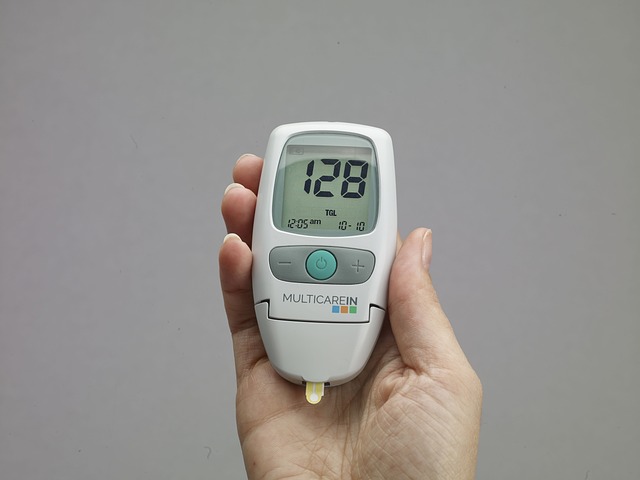Testosterone, crucial for men's health, is primarily produced in the testicles and influences various aspects including muscle mass, bone density, red blood cells, and libido. In the UK, Vitamin B12 blood tests are commonly used as a screening tool to assess testosterone levels, helping identify low testosterone (hypogonadism) early on. This simple, non-invasive procedure involves a brief blood draw, after which individuals can resume their day with minimal discomfort. Prompt diagnosis and effective treatment of male health concerns, including addressing vitamin deficiencies like B12, are essential for managing testosterone levels.
In the UK, testosterone level testing plays a pivotal role in diagnosing male health issues. Understanding testosterone levels and their significance is crucial for men seeking optimal well-being. This article delves into the process of testosterone testing, what to expect during the procedure, and interpreting results. Additionally, it explores treatment options for low testosterone, highlighting the importance of professional guidance. For those considering a UK vitamin B12 blood test as part of their health assessment, this guide offers valuable insights into managing male health effectively.
- Understanding Testosterone Levels and Their Significance in Men's Health
- The Process of Testosterone Level Testing: What to Expect
- Interpreting Results and Exploring Treatment Options for Low Testosterone
Understanding Testosterone Levels and Their Significance in Men's Health
Testosterone is a hormone that plays a pivotal role in men’s health and well-being. It is primarily produced in the testicles, with a small amount also synthesized in the adrenal glands and ovaries. This hormone is responsible for various physical traits and functions, including muscle mass development, bone density maintenance, red blood cell production, and libido. Understanding testosterone levels is crucial as it can significantly impact overall health and quality of life.
In the UK, Vitamin B12 blood tests are often used as a screening tool to assess men’s hormonal health, with testosterone being a key marker. A comprehensive analysis of hormone levels can help identify potential issues early on. Low testosterone, also known as hypogonadism, can lead to various symptoms such as fatigue, muscle weakness, decreased libido, and changes in body composition. Recognizing the significance of these levels is essential for prompt diagnosis and treatment of male health issues.
The Process of Testosterone Level Testing: What to Expect
Testosterone level testing is a straightforward procedure that involves taking a blood sample to measure your testosterone levels. This process is typically non-invasive and can be carried out at various healthcare facilities across the UK, including clinics and hospitals. During the test, a health professional will clean your skin in the area where the needle will be inserted, usually the arm. They’ll then insert a needle to draw a small amount of blood, which is sent to a lab for analysis.
What to expect during the testing process includes feeling a brief prick when the needle enters your skin, followed by slight discomfort as the blood is drawn. The procedure is generally quick, taking around 10–15 minutes, and you can usually go about your day immediately after, though you may experience some mild bruising or soreness at the injection site for a short period. It’s important to discuss any concerns with your healthcare provider before the test, who can provide further reassurance and ensure an enjoyable experience.
Interpreting Results and Exploring Treatment Options for Low Testosterone
Understanding your testosterone levels is a crucial step in managing male health issues, and interpreting test results is an essential part of this process. If the UK Vitamin B12 Blood Test indicates low testosterone (hypogonadism), it’s important to discuss these findings with your healthcare provider. They will consider various factors, including age, overall health, and symptoms presented, to determine the cause. Testosterone levels can naturally fluctuate throughout the day, so multiple tests over time may be recommended for an accurate diagnosis.
Treatment options for low testosterone vary depending on the underlying cause. In some cases, lifestyle changes such as regular exercise and a balanced diet can help improve levels. Hormone replacement therapy (HRT) is another option, which involves taking synthetic or bioidentical testosterone to restore balance. This treatment should be closely monitored by a healthcare professional to ensure safe and effective results. Additionally, addressing any vitamin deficiencies, including B12, through supplementation or dietary adjustments, may also be part of a comprehensive treatment plan.
Testosterone level testing is a valuable tool in diagnosing male health issues, particularly those related to low testosterone. By understanding the significance of these levels and undergoing a simple blood test, men in the UK can take proactive steps towards optimal health. Interpreting results accurately opens doors to targeted treatments, ensuring individuals can lead healthier, more fulfilling lives. This comprehensive approach to men’s health is a vital step forward in addressing hormonal imbalances effectively.
